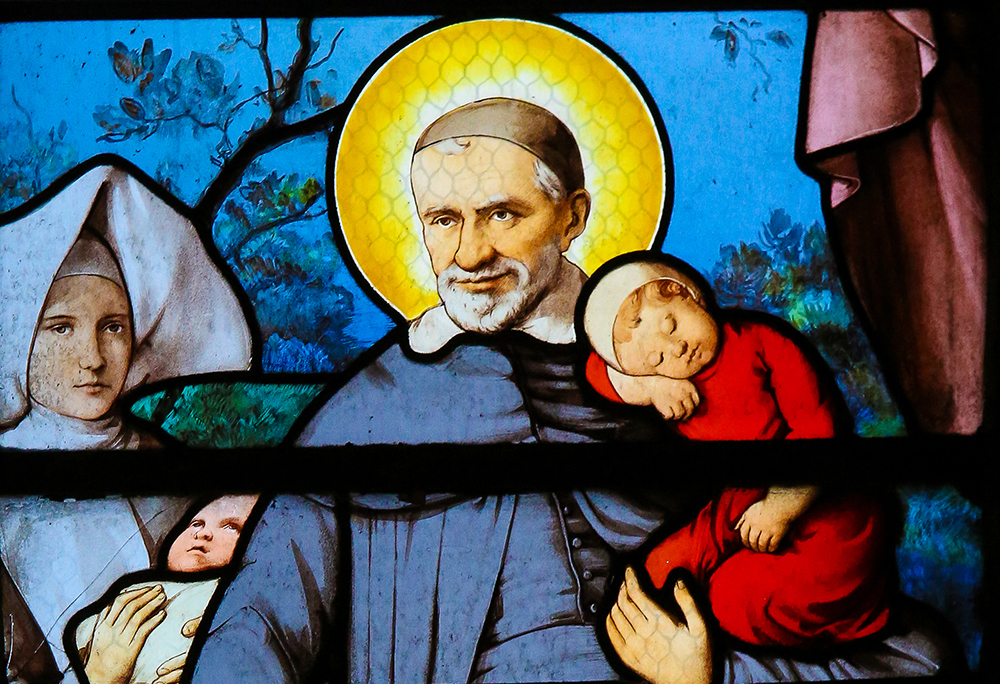‘Fear not; calm will follow the storm, and perhaps soon.’
St. Vincent de Paul’s holiness matured slowly but became legendary. He had a heart for the poor and was dedicated to the service of those suffering from poverty. His humility and generosity have propelled Christians to greater charity for centuries.
Although Vincent de Paul became most well-known for his works of service, he was also a reformer. Formed by a French clerical culture weighed down by temptation — which was more focused on wealth and prestige than on service to God’s people — Vincent was a leader in the process of ecclesial renewal. He worked to reform the clergy and help the wider Church refocus its mission.
Born into a peasant farming family in southwestern France in 1581, Vincent went to seminary in his mid-teens. The experience was anything but a time to grow spiritually, as he encountered more conflict and violence than study and prayer.
The clerical culture of Vincent’s era consisted of two kinds of priests: those more possessed by a zeal for souls in parishes, surviving on the generosity of their people; and those who had attained power and wealth from benefactors, not so much concerned with pastoral work as involvement in temporal affairs. Early on, Vincent aimed for the latter, hoping for an early retirement once he landed a wealthy benefactor’s endowment.
Ordained in 1600 at only 19, five years before the canonically legal age, it is unclear if Vincent or others fibbed on the document recommending him for orders without any impediments. Only then did he complete his theology degree in Paris. A two-year period followed during which Vincent claimed to have been enslaved by pirates, but historians debate the veracity of his account.
After returning to France, Vincent spent about a year in Rome, possibly for study, but returned to France somewhat saddened. He came under the tutelage of a major figure of reform in the French church. Later, he took on assignments at parishes and in the employ of the aristocratic Gondi family. There, Vincent attended to the estate’s peasants, and from that experience he gradually turned his attention to the poor and their needs.
Since the poor had little to offer the clergy, they were often ignored. Vincent grew in awareness of what corrupted clerical culture was doing to the Church, with more concern for power and privilege than holiness and apostolic works. Vincent said, “Judging from the way that most priests are living today, I would say they are the greatest enemies of Christ’s church.” A saying of the time was “if you want to go to hell, become a priest.”
Through the influence of spiritual giants like St. Francis de Sales, Vincent came to realize that holy priests were needed to build up a holy Church. “There is nothing so grand as a good priest,” he said. As he poured out his life in ministry for others, especially those on the margins, he desired to assist the Church in renewing priestly life with a focus on personal sanctification and the needs of the poor.
With that in mind, Vincent established the Congregation of the Mission — a men’s order also known as the Vincentians, directed toward those abandoned and forgotten — which he hoped would help reorient clerical life toward holiness and service. To that end, he also worked for wider seminary reform. And, with the help of the widowed St. Louise de Marillac, Vincent founded the Daughters of Charity so that women could share in ministry to the sick and poor.
Vincent is patron of all charitable works. In addition to the religious communities, over the course of time he established many local charitable groups, urging members to see Christ in the poor and attain holiness in their service. Inspired to carry on these Vincentian principles, Blessed Frederic Ozanam founded the Society of St. Vincent de Paul in 1833.
Vincent de Paul died in Paris in 1660, heralded as having “changed the face of the Church.” His feast is Sept. 27.
Michael R. Heinlein is editor of Simply Catholic and a graduate of The Catholic University of America. He writes from Indiana. Taken from”Saints in Times of Crisis” booklet from Our Sunday Visitor.

